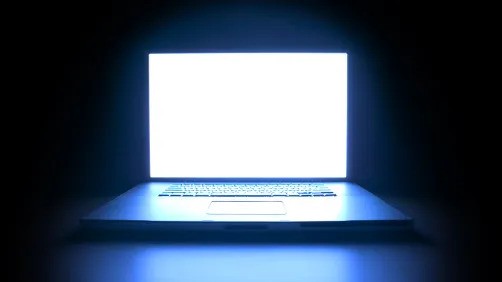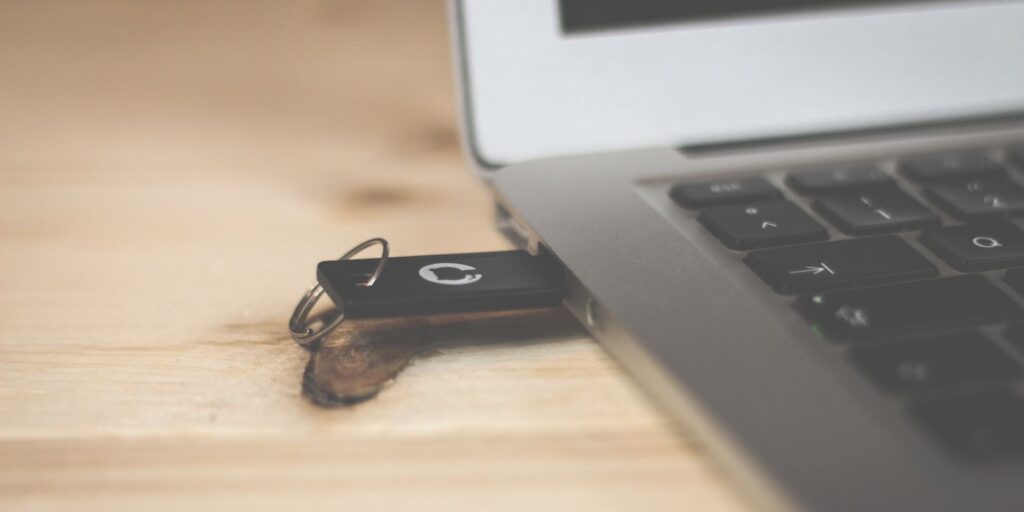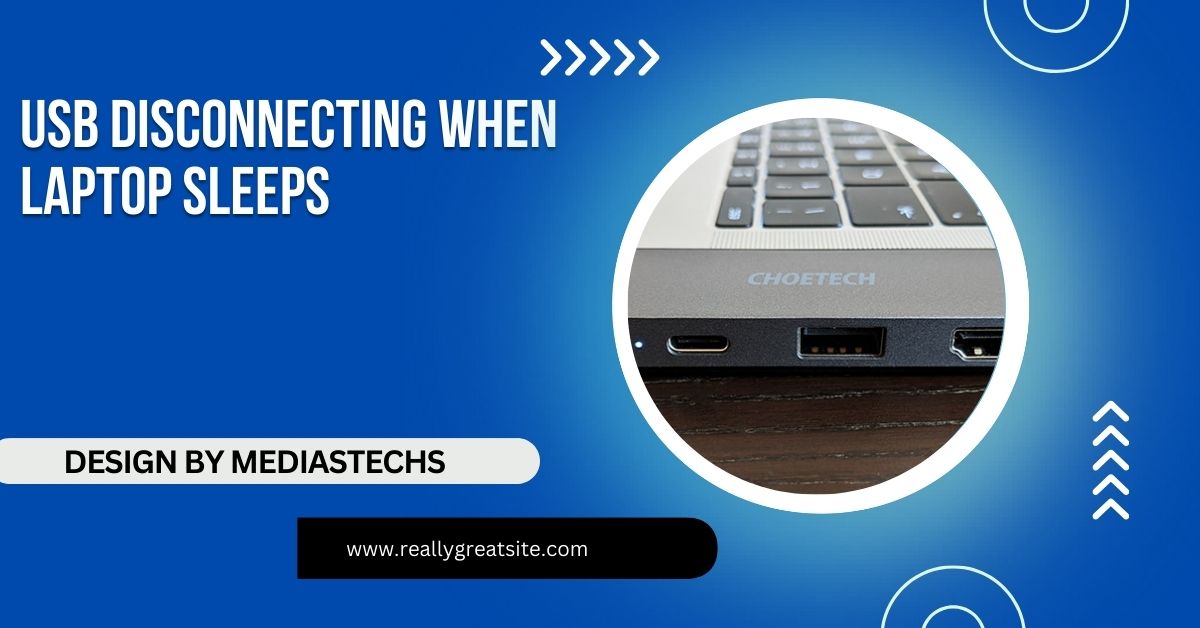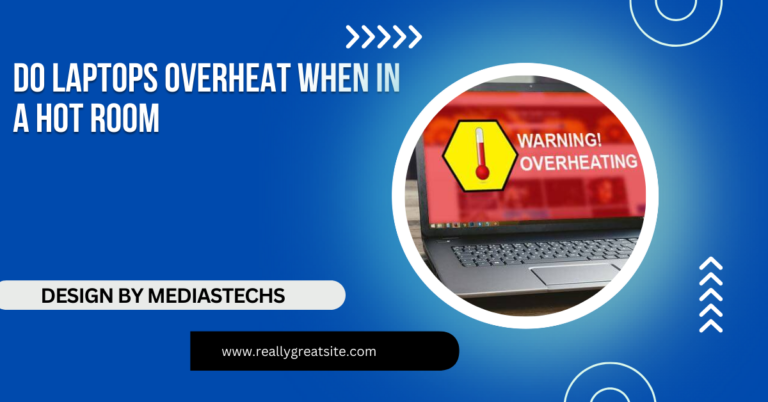USB Disconnecting When Laptop Sleeps – Detailed Causes, Fixes, and Prevention
USB disconnections when a laptop sleeps typically occur due to power management settings that disable USB ports to save energy. Adjusting these settings, disabling USB Selective Suspend, and keeping drivers updated can effectively resolve the issue.
Whether it’s your work data or important files, dealing with USB Disconnecting When Laptop Sleeps is a hassle. This guide will cover in-depth why this happens, how to fix it, and ways to prevent it.
What Happens When Your Laptop Enters Sleep Mode?
To understand why USB disconnections occur when your laptop sleeps, let’s first examine what happens during sleep mode. Sleep mode is a power-saving state, similar to pausing a video game or hibernating a computer.
The laptop reduces its power consumption by shutting down non-essential operations, such as dimming the screen, pausing running applications, and reducing the power supplied to external hardware, including USB devices.
When a laptop enters sleep mode, it transitions into a state where:
- The display is turned off.
- The CPU, RAM, and other internal components switch to low-power states.
- Most running applications are paused or temporarily stored in memory (RAM).
- Certain hardware components, including USB ports, may be disabled to conserve energy.
This is especially common in laptops as they aim to preserve battery life. However, during this state, some external devices—such as USB hard drives, printers, or peripherals—may lose connection, resulting in disconnections when the laptop is woken up again.
Why Do USB Devices Disconnect When Laptop Sleeps?

There are several key reasons why USB devices disconnect when a laptop enters sleep mode. These reasons revolve around power management, hardware configuration, and software compatibility.
1. Laptop Power Management Settings
Most laptops are configured by default to save as much power as possible when they are inactive, especially in battery mode. This includes turning off USB ports to reduce power consumption.
For instance, when your laptop sleeps, the operating system may cut off power to USB ports to conserve battery life. While this feature is designed to extend battery performance, it can cause unexpected behavior, such as disconnecting USB devices.
2. USB Selective Suspend in Windows
One of the lesser-known power-saving features in Windows is called USB Selective Suspend. This feature turns off USB ports selectively when they are not in use, which helps in saving power, especially for battery-powered laptops.
However, sometimes this feature interferes with USB devices, especially after the laptop wakes from sleep mode. The system may fail to re-enable the port or device after waking up, causing it to disconnect. USB Selective Suspend is often the culprit behind USB disconnection issues when waking from sleep mode.
3. Outdated or Corrupt USB Drivers
Drivers serve as the communication bridge between your laptop’s hardware and the operating system. If the USB drivers on your laptop are outdated or corrupted, it can cause improper functioning of USB ports, leading to devices not reconnecting properly after sleep.
Additionally, updates to your operating system (such as Windows 10 or 11) might sometimes cause compatibility issues with existing USB drivers, leading to the problem of USB disconnection when your laptop sleeps.
4. BIOS or UEFI Configuration
Your laptop’s BIOS (Basic Input/Output System) or UEFI (Unified Extensible Firmware Interface) is responsible for managing the hardware components, including USB ports. Certain BIOS/UEFI settings control how power is distributed to USB ports during sleep mode. If these settings are misconfigured, it may lead to USB devices being disconnected.
In some laptops, there’s a setting to allow USB power during sleep mode. If this is disabled in the BIOS/UEFI, your laptop will automatically cut off power to all USB devices, causing them to disconnect during sleep.
5. Fast Startup in Windows
Windows has a feature called Fast Startup that allows quicker boot times. However, this feature may interfere with USB devices. When Fast Startup is enabled, the computer doesn’t completely shut down, and USB devices may not reinitialize properly after sleep, leading to disconnections.
Read also: Dime 3 Earbuds Not Hearing Laptop – Quick Solutions
How to Fix USB Disconnecting When Laptop Sleeps
To fix USB devices disconnecting during sleep mode, there are several solutions you can try. Let’s dive into each method to find the best solution for your laptop.
1. Adjust Power Management Settings
The most common fix is to adjust your laptop’s power management settings, preventing it from disabling USB devices during sleep mode.
Steps to change power settings on Windows:
- Open Device Manager by right-clicking the Start button and selecting Device Manager.
- Scroll down to Universal Serial Bus controllers and expand it.
- Right-click each USB device listed and select Properties.
- In the Power Management tab, uncheck the box next to Allow the computer to turn off this device to save power.
- Click OK to save changes.
This will prevent Windows from disabling the USB ports when your laptop sleeps, ensuring devices remain connected.
2. Disable USB Selective Suspend
USB Selective Suspend can be a helpful feature, but if it’s causing your USB devices to disconnect, disabling it might solve the issue.
Steps to disable USB Selective Suspend:
- Open the Control Panel and go to Power Options.
- Click on Change plan settings next to your active power plan.
- Choose Change advanced power settings.
- Scroll down to USB settings and expand USB selective suspend setting.
- Select Disabled for both On battery and Plugged in.
- Click Apply and then OK.
This will stop Windows from selectively suspending USB ports, helping to prevent disconnections when the laptop sleeps.
3. Update USB Drivers
Sometimes, the issue may lie with outdated or corrupt USB drivers. Keeping them updated can ensure smooth communication between your laptop and external USB devices.
Steps to update USB drivers:
- Open Device Manager by right-clicking the Start button and selecting Device Manager.
- Expand Universal Serial Bus controllers.
- Right-click each USB device listed and select Update driver.
- Choose Search automatically for updated driver software.
Alternatively, you can visit your laptop’s manufacturer website and manually download the latest drivers for your model.
4. Check and Configure BIOS/UEFI Settings
If adjusting the operating system’s power management settings doesn’t resolve the issue, you may need to check the BIOS/UEFI settings related to USB ports.
Steps to check BIOS/UEFI settings:
- Restart your laptop and press the designated key (usually F2, Delete, or Esc) to enter BIOS/UEFI settings.
- Look for settings related to USB Power Management or USB Configuration.
- Ensure options like USB Power During Sleep Mode or Wake on USB are enabled.
- Save the changes and exit the BIOS/UEFI settings.
Enabling these settings will ensure that your USB ports remain powered even during sleep mode.
5. Disable Fast Startup
Disabling Fast Startup may resolve any USB device reinitialization issues after sleep.
Steps to disable Fast Startup in Windows:
- Open the Control Panel and go to Power Options.
- Click Choose what the power buttons do on the left-hand side.
- Select Change settings that are currently unavailable.
- Uncheck the box next to Turn on fast startup (recommended).
- Click Save changes.
This will allow Windows to perform a full shutdown, which may help resolve any issues related to USB reconnection after sleep.
Advanced Tips for Preventing USB Disconnections

Once you’ve resolved the immediate issue, here are some additional tips to prevent USB devices from disconnecting in the future.
1. Use a Powered USB Hub
If you are using multiple USB devices, especially those that require significant power (such as external hard drives or USB-powered displays), it may be beneficial to use a powered USB hub. Powered hubs provide additional energy to connected devices, which can reduce the chances of disconnection.
2. Monitor Power Plan Settings
It’s important to periodically check your laptop’s power plan settings, especially if you update your operating system or drivers. Some updates may reset or change your power settings, which can lead to USB disconnection issues reoccurring.
Read also: Snapchat Performance Issues on Laptops – Common Causes and Fixes
3. Avoid Using USB Devices for Critical Tasks During Sleep
As a precautionary measure, avoid using USB devices for critical tasks—like running unsaved files or projects—when you anticipate your laptop may enter sleep mode. Always save your work or safely eject external devices before putting your laptop to sleep to prevent data loss.
4. Disable Sleep Mode for Specific Scenarios
If you find that sleep mode causes too many issues with your USB devices, consider disabling sleep mode altogether in certain scenarios. You can configure your laptop to only enter sleep mode manually or adjust the sleep timer based on your usage.
Conclusion:
USB disconnections during laptop sleep can be resolved by adjusting power management settings, disabling USB Selective Suspend, and keeping drivers updated. Understanding the impact of USB standards and using powered hubs can also help maintain connections. Proactive troubleshooting ensures a seamless experience with your devices, even in sleep mode.
FAQs
1. Why do my USB devices disconnect when my laptop sleeps?
USB devices disconnect during sleep due to power management settings that turn off USB ports to conserve energy.
2. How can I prevent USB disconnections when my laptop sleeps?
You can prevent disconnections by adjusting power management settings, disabling USB Selective Suspend, and ensuring your drivers are up to date.
3. What is USB Selective Suspend?
USB Selective Suspend is a Windows feature that allows the system to turn off USB ports selectively to save power, which can cause disconnection issues.
4. Can BIOS settings affect USB connectivity during sleep?
Yes, incorrect BIOS or UEFI settings can disable power to USB ports during sleep, leading to disconnections.
5. Is using a powered USB hub beneficial?
Yes, a powered USB hub provides additional power to connected devices, reducing the likelihood of disconnections, especially for power-hungry devices.






